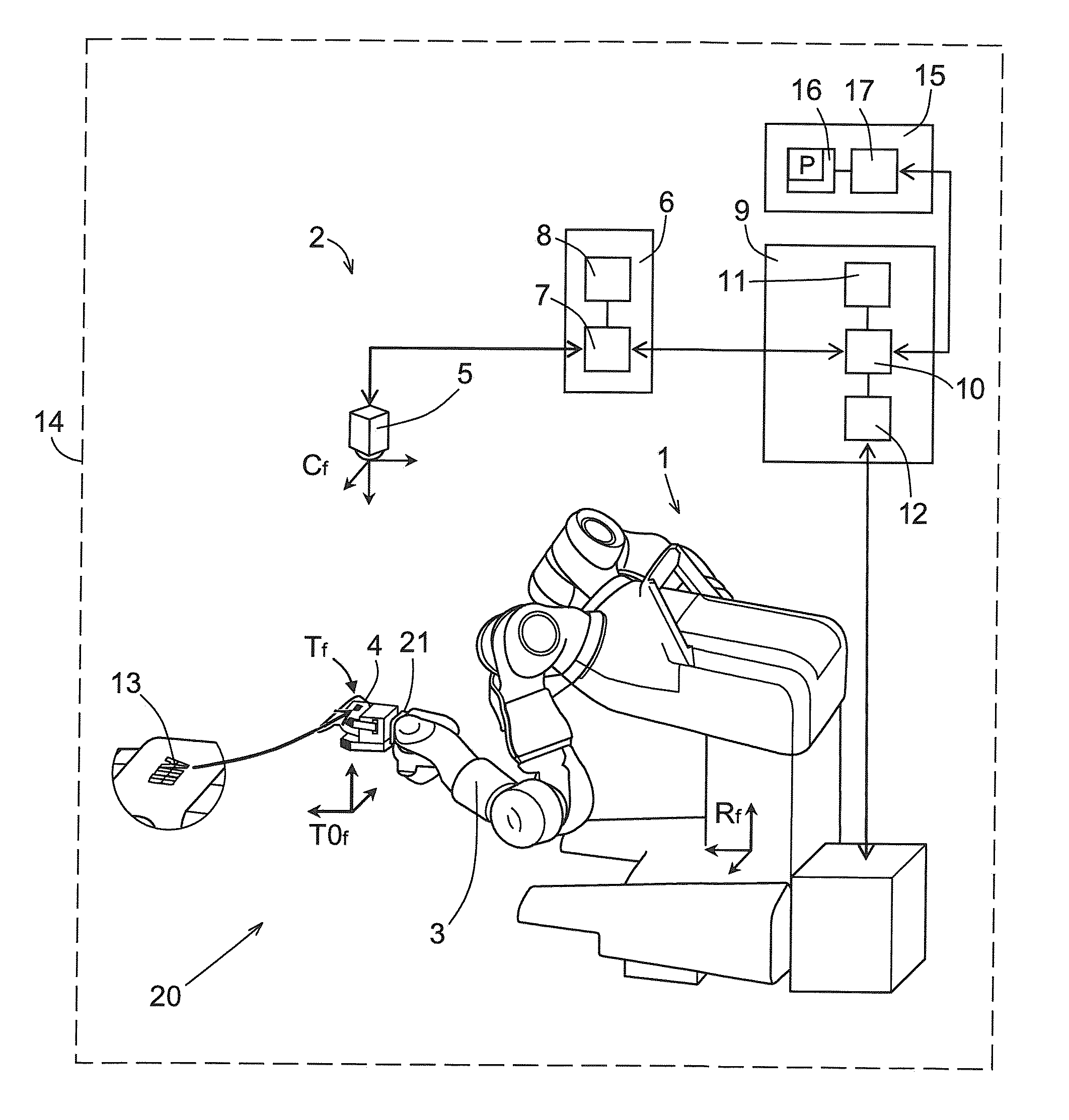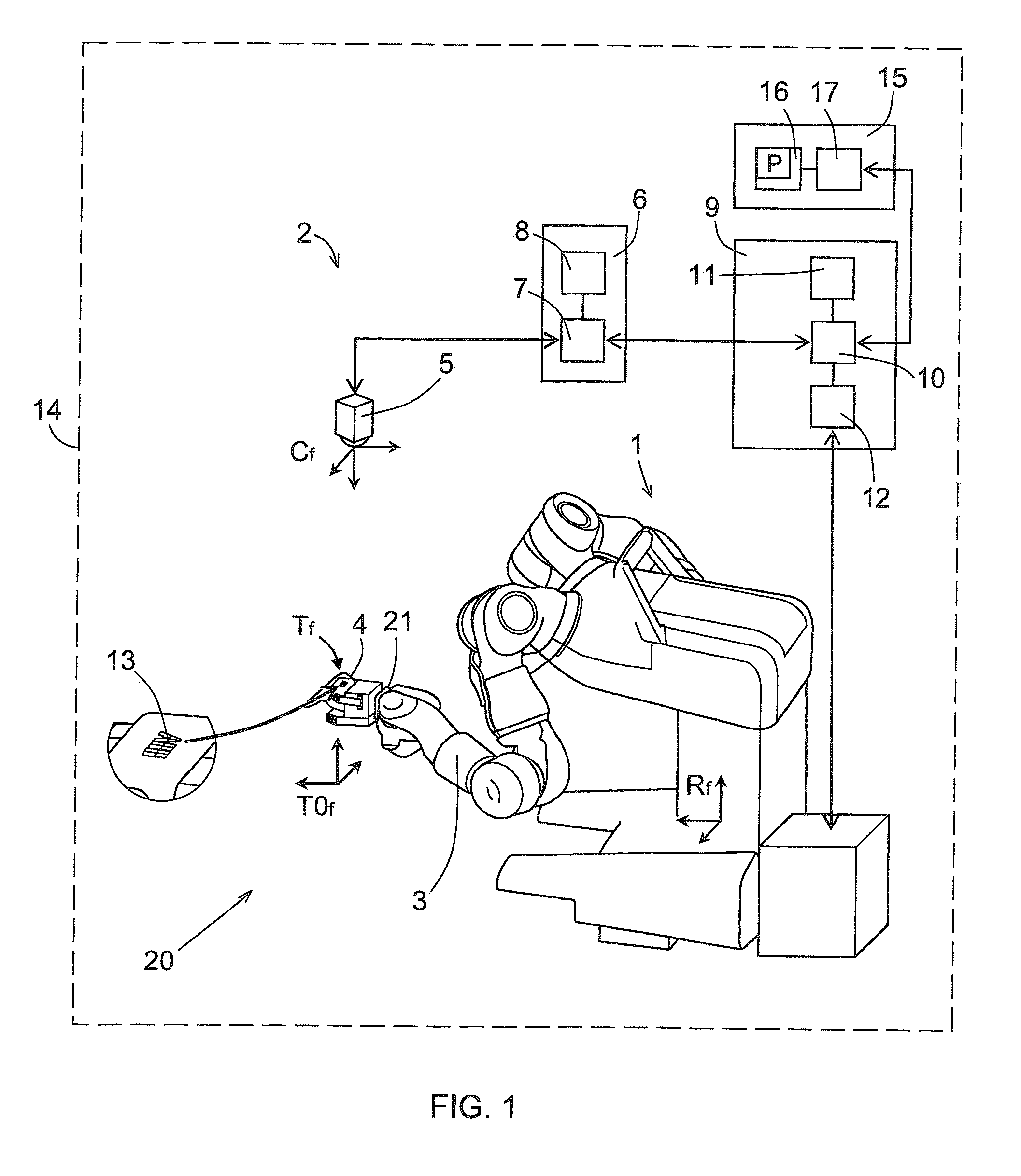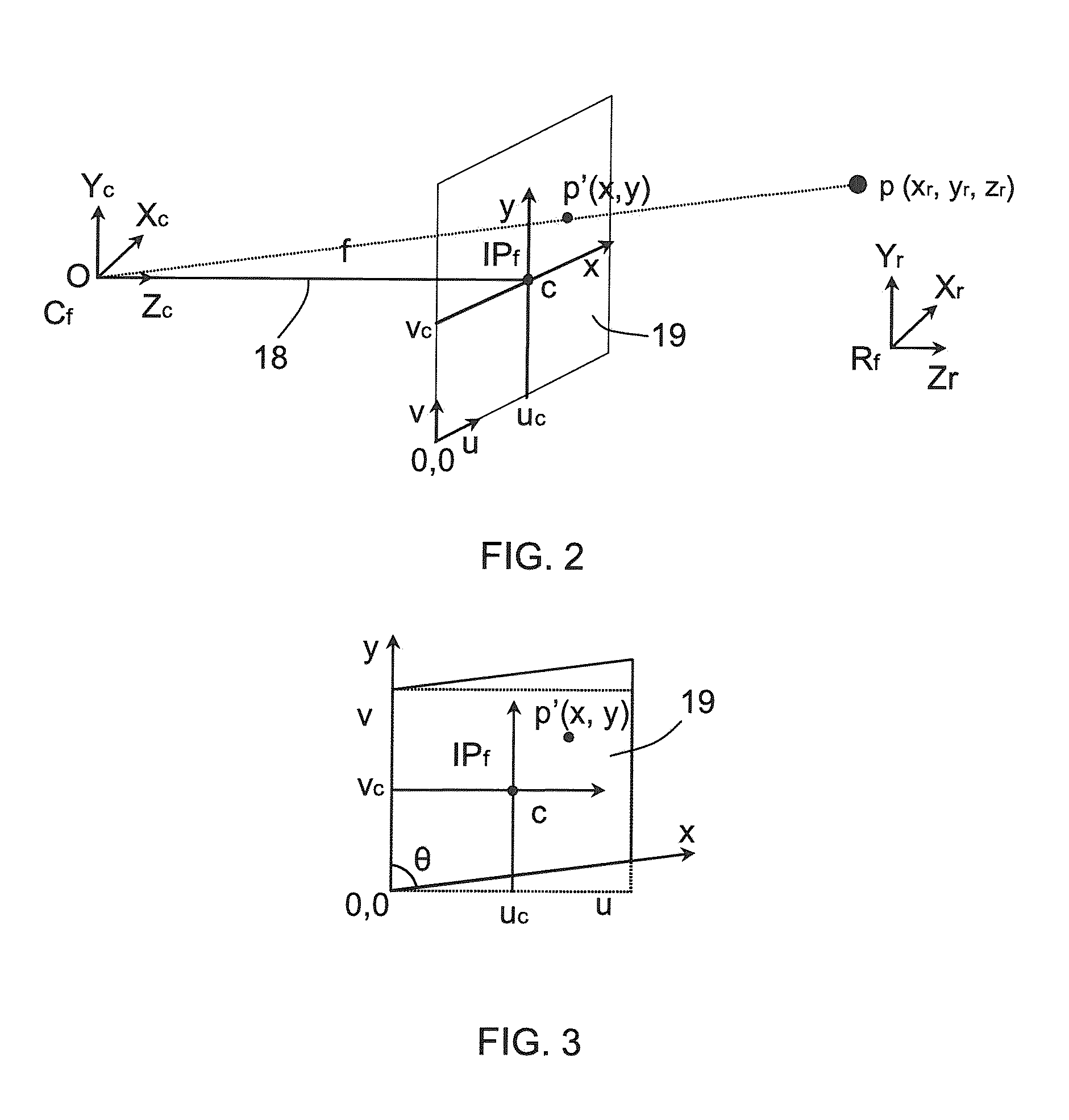Robot System And Method For Calibration
a robot system and calibration technology, applied in the field of robot system and calibration method, can solve the problems of inability to know in advance or change the position of the calibration marker during work, and achieve the effect of fast and accurate calibration of the object identification unit and accurate calibration of the different end effectors
- Summary
- Abstract
- Description
- Claims
- Application Information
AI Technical Summary
Benefits of technology
Problems solved by technology
Method used
Image
Examples
Embodiment Construction
[0043]FIG. 1 illustrates an example of a robot system 14 comprising a robot unit 1 defining a first coordinate system Rf and an object identification unit 2 defining a second coordinate system Cf. The robot unit 1 comprises a robot arm 3 with an end effector 4. The robot unit 1 is an articulated robot unit 1 and has six degrees of freedom. The robot arm 3 is also provided with a tool flange 21 defining a third coordinate system T0f. The end effector 4 is attached to the tool flange 21. The relationship between the first and third coordinate systems Rf and T0f is a known relationship.
[0044]The robot unit 1 and the object identification unit 2 are located at a work station 20. The robot unit 1 is configured to perform work at the work station 20.
[0045]The robot unit 1 comprises a robot controller 9 configured to control movement of the robot arm 3 by means of controlling a plurality of electric motors on the robot arm 3. The robot controller 9 comprises a programming unit 10, e.g. a c...
PUM
 Login to View More
Login to View More Abstract
Description
Claims
Application Information
 Login to View More
Login to View More - R&D
- Intellectual Property
- Life Sciences
- Materials
- Tech Scout
- Unparalleled Data Quality
- Higher Quality Content
- 60% Fewer Hallucinations
Browse by: Latest US Patents, China's latest patents, Technical Efficacy Thesaurus, Application Domain, Technology Topic, Popular Technical Reports.
© 2025 PatSnap. All rights reserved.Legal|Privacy policy|Modern Slavery Act Transparency Statement|Sitemap|About US| Contact US: help@patsnap.com



